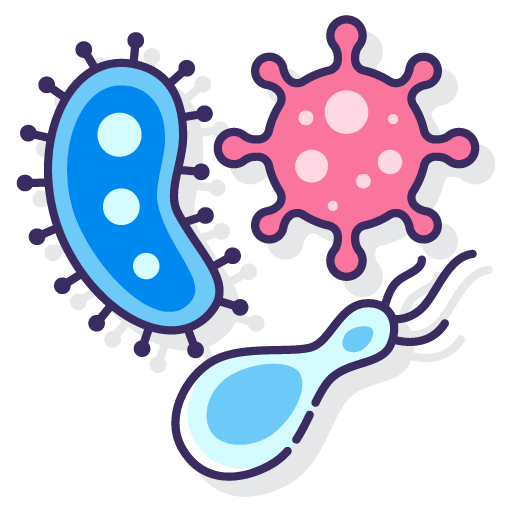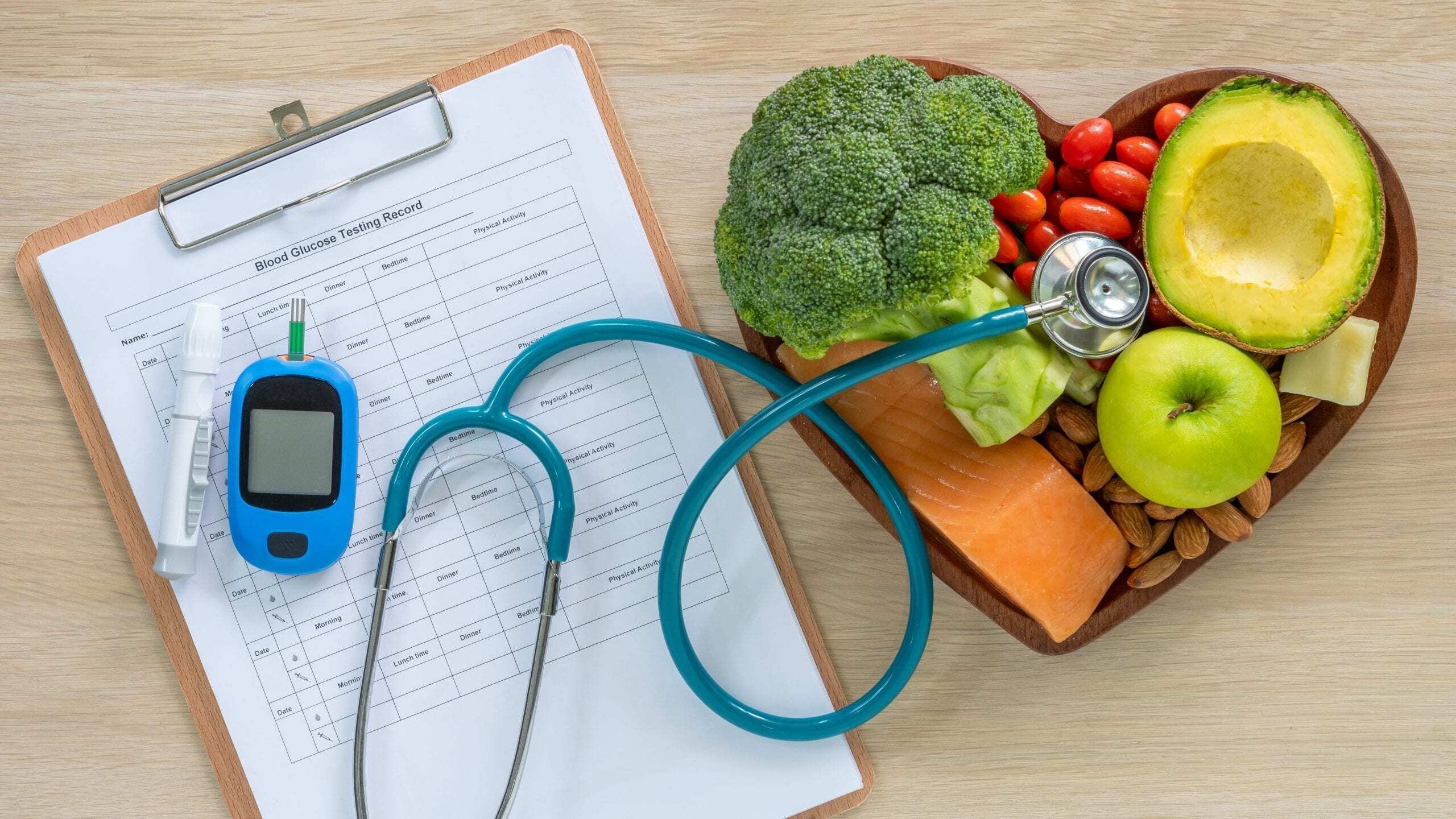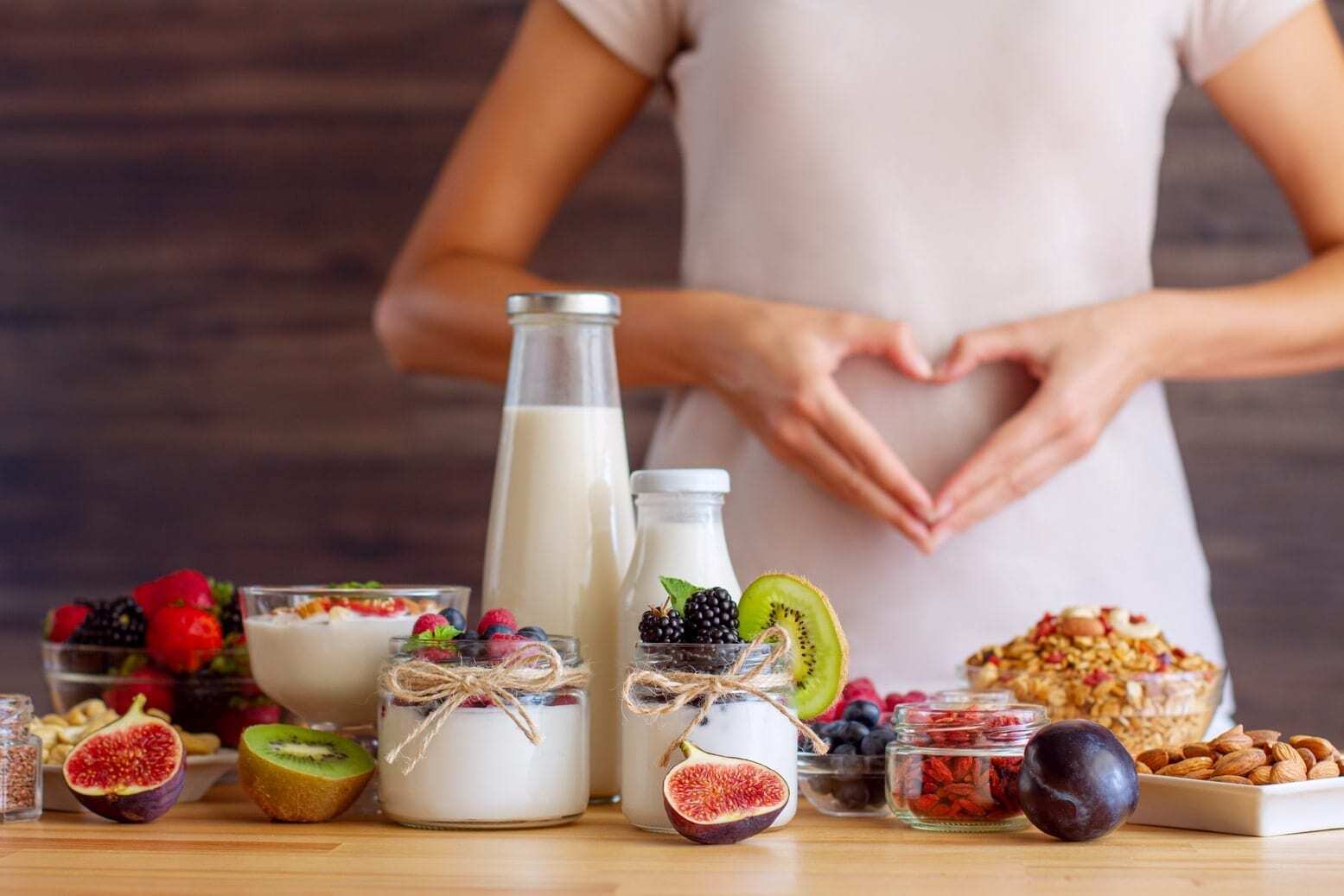According to the definition by World Health Organization(WHO), probiotics is the microorganism which when administered in adequate amounts confer a health benefit on the host.
In human body, there are many of invisible residents which are the microbiota. Most of them are live in our gastrointestinal tract, others are distributed in our mouth, respiratory tract, skin and vagina etc. They communicate with our bodies all the time and their ecological balance is closely related to our health, especially the composition of intestinal microbes, which directly affect the immune system under the intestinal tract and affects the whole body afterward. The microbiome is a miniature society. There are good people and bad people. To maintain our health, there must be enough beneficial bacteria to inhibit harmful bacteria. These bacteria that are beneficial to health are probiotics.

Where to find probiotics?
The first batch of probiotics
The first batch of probiotics in human body is came from mother’s vagina. As early as when the mother is pregnant, the microbes have been passed from the placenta to the fetus, and then at the time of delivery, the probiotics in the mother’s vagina are passed to the baby and it is the first gift to the baby. The first gift is conducive to the healthy growth of the baby. Conversely, the intestinal microbiota of infants delivered by caesarean section is different from that of vaginal delivery. They are also at higher risk of allergic diseases and autism, and the structure of the intestinal microbiome is roughly formed after about three years old. Therefore, probiotics are very important for the healthy growth of babies is very important.
Where can you find probiotics?
Probiotics can be found in many foods, especially dairy products, soy products and fermented foods, such as yoghurt, buttermilk, pickles, kimchi, natto, kefir, sauerkraut, miso, kombucha, etc.
The benefits of probiotics
- Guts health
- Controlling immune system
- Against Obesity
- Mental Health
The most important benefit of probiotics is to improve the intestinal environment and digestive system. They produce different types of enzymes to digest food, produce many vitamins, folic acid, amino acids and other substances needed by the human body, and also can decompose harmful substances and metabolic drugs. Keep the intestinal cells tightly connected and prevent the invasion of harmful bacteria and viruses. Probiotics can alleviate gastroenteritis and diarrhea, including diarrhea caused by antibiotics, irritable bowel syndrome (IBS), or Clostridioides difficle infection. On the other hand, probiotics can regulate intestinal activity, increase peristalsis, and improve constipation. The so-called disease is imported from the mouth. Pathogens can easily enter the body from the digestive tract. Probiotics produce different antibacterial substances, such as organic acids, enzymes, hydrogen peroxide, bacteriocins, and antimicrobial peptides. Or compete with pathogens, preventing them from joining the host cells. In addition, patients suffering from inflammatory bowel disease (IBD) often have abnormal intestinal microbial composition, and probiotics have the function of reducing inflammation. They produce short chain fatty acids (SCFAs). Reduce the degree of inflammation and promote the restoration of the balance of the microbial ecology in the intestinal tract. Therefore, probiotics have become the direction of potential treatment options. There are currently positive developments in this area.
Probiotics are excellent in regulating the immune system and anti-allergic. Controlling inflammatory bowel disease is an example. Currently, there are a large number of scientific studies on probiotics supporting the use of probiotics in diseases related to the immune system and allergies, such as atopic dermatitis, asthma, allergic rhinitis, food allergies, etc. To achieve homeostasis by reconciling the balance between triggering and suppressing immune response mechanisms, such as regulating the number and activity of Th1 and Th2 in helper T cells, and adjusting the content of different cytokines.
Obesity and diabetes are very common chronic diseases. They are the result of an imbalance in central energy metabolism due to excessive energy intake. Too much sugar will overload the cells, increase blood sugar, and convert it into fat, which will cause chronic inflammation. Too much cholesterol will form insoluble plaques that accumulate in the blood vessel wall, causing chronic inflammation and increasing the risks of cardiovascular disease. Probiotics can regulate the secretion of gastrointestinal hormones, lower blood sugar, maintain the homeostasis of sugar and fat metabolism, and reduce the risk of cholesterol accumulation. In addition, probiotics also affect the control of the hungry signal and achieve the effect of suppressing appetite.
Many studies have pointed out that the gut microbiome can affect brain information transmission and mental health, such as emotions, stress, anxiety, autism, depression, Alzheimer’s disease, etc. They are all related to the gut microbes. This is the mechanism that the gut microbiota regulates the connection between the intestine and the brain, which is the gut-brain axis. Studies have found that probiotics produce neurotransmitters, including tryptophan, γ-aminobutyric acid, serotonin, noradrenaline, etc. , it could reduce anxiety and depression symptoms, and even improve autism. The relationship between the gut microbiome, probiotics, and mental health has become a new field in biomedical research.
Bifidobacterium lactis
Lactobacillus paracasei
Lactobacillus plantarum
Bifidobacterium lactis



Lactobacillus paracasei




Lactobacillus plantarum




Probiotics? Prebiotics? Postbiotic?
Both humans and probiotics are living organisms. We think that if probiotics die, their functions will be lost and they will not work. So far, it turns out that it is not. Scientists have discovered that dead bacteria have similar effects to living bacteria. In fact, the derivatives of living probiotics, including dead bacteria, cell debris, and metabolites, are beneficial to the human body, collectively referred to as postbiotics. As for the prebiotics that we often hear, they are the food of probiotics, but the host can not digest them, and are beneficial to the health of the host. Common ones include inulin, galactooligosaccharides and fructose oligosaccharides. Sugar (fructooligosaccharides). Many probiotic products are used together with prebiotics to enhance their effectiveness, and they become synbiotics.
Know more about postbiotics
There are many types of postbiotics, including cell-free supernatants extracted from culture medium (supernatants), cell fermentation products, cell wall fragments after broken cells, cell lysates, extracellular vesicles, etc. In terms of chemical properties, metazoans also include exopolysaccharides, teichoic acid, peptidoglycan, enzymes, short chain fatty acids (SCFAs), organic Organic acids, bacteriocins, vitamins, folic acid, polyphenols, and so on, are all in abundance. In fact, many essential nutrients, such as vitamin B12, vitamin K, and folic acid, are synthesized and supplied by probiotics. Our health really depends on their contribution.
The postbiotics have the activity of imitating the living bacteria of probiotics and perform similar functions. For example, inactivated Lactobacillus casei (Lactobacillus casei) can increase the production of cytokines; inactivated Bifidobacterium (Bifidobacterium) can induce anti-inflammatory responses; and extracellular polysaccharides can stimulate T cells and natural killer cells of the immune system (Natural killer cells) hyperplasia, and there are reports that it has the effect of reducing cholesterol absorption, protecting the cardiovascular system, anti-ulcers, and anti-oxidation; the antioxidant enzymes produced by probiotics can eliminate reactive oxygen species (reactive oxygen species); protecting cells Protect from free radicals (free radicals). Short-chain fatty acid is one of the common probiotic metabolites. Butyrate is the energy source of intestinal cells, helps intestinal cell regeneration and maintains the integrity of the intestinal epithelium; it has the function of suppressing the immune system and it can inhibits atherosclerosis (atherosclerosis) caused by inflammation of the inner wall of blood vessels. Short-chain fatty acids stimulate the production of some gut hormones that inhibit energy production, such as peptide YY, to reduce body fat and control appetite by regulating the pathway of energy metabolism.
後生元有模仿益生菌活菌的活性,發揮近似的功能。例如滅活的乾酪乳桿菌(Lactobacillus casei)可以提升細胞因數(cytokines)的產生;滅活的雙歧桿菌(Bifidobacterium)能夠引導抗發炎反應;胞外多糖能夠刺激免疫系統的T細胞和天然殺手細胞(natural killer cells)增生,又有報告指出它有減少膽固醇吸收、保護心血管、抗潰瘍、抗氧化的效果;益生菌產生的抗氧化酶類可以消除活性氧類(reactive oxygen species);保護細胞免受自由基(free radicals)的傷害。短鏈脂肪酸是其中一種常見的益生菌代謝物,當中的丁酸(butyrate)是腸道細胞的能量來源,幫助腸道細胞再生,維持腸道上皮完整;它有抑制免疫系統的功能,又可以因抑制血管內壁發炎引致的動脈粥樣硬化(atherosclerosis)。短鏈脂肪酸通過調控能量代謝路徑,刺激一些抑制能量產生的腸胃激素(gut hormones)、例如YY肽(peptide YY)的產生,達到減少體內脂肪和控制食欲的效果。
Why postbiotics are needed?
Since probiotics are so beneficial, effective and safe, why do we need postbiotics? Although probiotics are very safe and the safe dose is very high, they need to be used with caution for some chronically ill, intestinal barriers, or people with very weakened immunity, considering the risk of infection and over-stimulation of the immune system. It cannot be ruled out that the opportunity to obtain antibiotic resistance can be avoided, so the risk of using live bacteria can be avoided, and the safety may be better. Because the postbiotics are not live bacteria, it can reduce the dependence on low-temperature storage, the storage is easier, the shelf life can be longer, and the transportation is more convenient. The potential of postbiotic applications in the health industry is a new field in the future.
List of Probiotics Products
References:
Kerry RG, Patra JK, Gouda S, Park Y, Shin HS, Das G. Benefaction of probiotics for human health: a review. Journal of Food and Drug Analysis, 2018, 26(3), 927-939. https://doi.org/10.1016/j.jfda.2018.01.002
Sanders ME, Merenstein DJ, Reid G, Gibson GR, Rastall RA. Probiotics and prebiotics in intestinal health and disease: from biology to the clinic. Nature Reviews Gastroenterology & Hepatology, 2019, 16, 605-616. https://doi.org/10.1038/s41575-019-0173-3
Wang HT, Anvari S, Anagnoustou K. The role of probiotics in preventing allergic disease. Children, 2019, 6, 24. doi:10.3390/children6020024
Tillisch K. The effect of gut microbiota on CNS function in humans. Gut Microbes, 5(3), 404-410. DOI: 10.4161/gmic.29232
Sarker A, Sehto SM, Harty S, Dinan TG, Cryan JF, Burnet PWJ. Psychobiotics and the manipulation of bacteria-gut-brain signals. Trends in Neurosciences, 2016, 39(11),763-781. http://dx.doi.org/10.1016/j.tins.2016.09.002 763
Noonan S, Zaveri M, Macaninch E, Martyn K. Food & mood: a review of supplementary prebiotic and probiotic interventions in the treatment of anxiety and depression in adults. BMJ Nutrition, Prevention & Health, 2020, 0. doi:10.1136/bmjnph-2019-000053
Moore RE, Townsend SD. Temporal development of the infant gut microbiome. Open Biology, 2019, 9, 190128. http://dx.doi.org/10.1098/rsob.190128
Medical News Today. Benefits of probiotics. Accessed on 15 Decemeber 2020. Available at: https://www.medicalnewstoday.com/articles/264721
Medical News Today. Probiotic foods: what to know? Accessed on 15 Decemeber 2020. Available at: https://www.medicalnewstoday.com/articles/323314
Cleveland Clinic. Probiotics. Accessed on 15 Decemeber 2020. Available at: https://my.clevelandclinic.org/health/articles/14598-probiotics
Harvard Health Publishing. Health benefits of taking probiotics. Accessed on 15 Decemeber 2020. Available at: https://www.health.harvard.edu/vitamins-and-supplements/health-benefits-of-taking-probiotics
| PGut Series | PGut VitaBac Immune Pro | PGut Premium E3 | PGut Allergy E3 | PGut Supremeslim E3 | PGut Mood+ E3 | PGut Kids Allergy Relieve Probiotics |
|---|---|---|---|---|---|---|
|
PGut Series Price |
PGut VitaBac Immune Pro $440 |
PGut Premium E3 $380 |
PGut Allergy E3 $380 |
PGut Supremeslim E3 $380 |
PGut Mood+ E3 $380 |
PGut Kids Allergy Relieve Probiotics $320 |
|
PGut Series Target group |
PGut VitaBac Immune Pro Adults (3 years old or above) |
PGut Premium E3 Adults (3 years old or above) |
PGut Allergy E3 Adults (3 years old or above) |
PGut Supremeslim E3 Adults (3 years old or above) |
PGut Mood+ E3 Adults (3 years old or above) |
PGut Kids Allergy Relieve Probiotics Kids |
|
PGut Series Product type |
PGut VitaBac Immune Pro Capsules |
PGut Premium E3 Capsules |
PGut Allergy E3 Capsules |
PGut Supremeslim E3 Capsules |
PGut Mood+ E3 Sachet powder |
PGut Kids Allergy Relieve Probiotics Sachet powder |
|
PGut Series Number of Probiotics + Prebiotics |
PGut VitaBac Immune Pro 10+3 |
PGut Premium E3 8+3 |
PGut Allergy E3 7+3 |
PGut Supremeslim E3 11+3 |
PGut Mood+ E3 6+3 |
PGut Kids Allergy Relieve Probiotics 6+3 |
|
PGut Series Postbiotics |
PGut VitaBac Immune Pro HK-LP |
PGut Premium E3 HK-LP |
PGut Allergy E3 HK-LP |
PGut Supremeslim E3 HK-LP |
PGut Mood+ E3 HK-LP |
PGut Kids Allergy Relieve Probiotics  |
|
PGut Series Target disease/ health concern |
PGut VitaBac Immune Pro Strengthens your immunity and Rejuvenates |
PGut Premium E3 Adjust overall intestinal health and improve immunity |
PGut Allergy E3 Prevent skin allergy and relieve symptoms of nasal allergy |
PGut Supremeslim E3 Weight management, reducing sugar absorption, detoxification |
PGut Mood+ E3 Improve sleeping quality, maintain relaxation |
PGut Kids Allergy Relieve Probiotics Regulate children's immune system and improve children's anti-allergy ability |
|
PGut Series Link Page |
PGut VitaBac Immune Pro Learn more |
PGut Premium E3 Learn more |
PGut Allergy E3 Learn more |
PGut Supremeslim E3 Learn more |
PGut Mood+ E3 Learn more |
PGut Kids Allergy Relieve Probiotics Learn more |
Hou YH, Lin SW, Zhao C, Lu HC, Chen YL, Lin WH, Chen CC. Effect of Bifidobacterium lactis GKK2 on OVA-induced asthmatic mice. Hans Journal of Biomedicine, 2019, 9(2), 70-80.
Hou YH, Lin SW, Wu CJ, Chen YL, Chen CC. Potential protective effect of lactic acid-producing bacteria against influenza A virus infection. Journal of Testing and Quality Assurance, 2020, 9, 148-154.
Rizzardini G, Eskesen D, Calder PC, Capetti A, Jaspersen L, Clerici M. Evaluation of the immune benefits of two probiotic strains Bifidobacteriu animalis ssp. lactis, BB-12 and Lactobacillus paracasei ssp. paracasei, L. casei 431 in an influenza vaccination model: a randomised, double-blind, placebo-controlled study. British Journal of Nutrition, 2012, 107, 876-884.
Jungersen M, Wind A, Johansen E, Christensen JE, Stuer-Lauridsen B, Eskesen D. The science behind the probiotic strain Bifidobacterium animalis subsp. lactis BB-12. Microorganisms, 2014, 2, 92-110.
Hill D, Sugrue I, Tobin C, Hill C, Stanton C, Ross RP. The Lactobacillus casei group: history and health related applications. Frontiers in Microbiology, 2018, 9, 2107.
Wang CS, Lin SW, Zhao C, Chen YL, Tsai PC, Chen CC. Hypoglycemic effect of Lactobacillus paracasei GKS6. Hans Journal of Food and Nutrition Science, 2019, 8(1), 9-16.
Tsai YS, Lin SW, Chen YL, Chen CC. Effect of probiotics Lactobacillus paracasei GKS6, L. plantarum GKM3, and L. rhamnosus GKLC1 on alleviating alcohol-induced alcoholic liver disease in a mouse model. Nutrition Research and Practice, 2020, 14, e41.
Yang LC, Lin, SW, Li IC, Chen YP, Tzu SY, et al. Lactobacillus plantarum GKM3 and Lactobacillus paracasei GKS6 supplementation ameliorates bone loss in ovariectomized mice by promoting osteoblast differentiation and inhibiting osteoclast formation. Nutrients, 2020, 12, 1914. doi:10.3390/nu12071914.
Choi JH, Moon CM, Shin TS, Kim EK, McDowell A, Jo MK, Joo YH, Kim SE, Jung HK, Shim KN, Jung SA, Kim YK. Lactobacillus paracasei-derived extracellular vesicles attenuate the intestinal inflammatory response by augementing the endoplasmic reticulum stress pathway. Experimental & Molecular Medicine, 2020, 52, 423-437.
Benyacoub J, Bosco N, Bkanchard C, Demont A, Philippe D,Castiel-Higounenc I, Gueniche A. Immune modulation property of Lactobacillus paracasei NCC2461 (ST11) strain and impact on skin defences. Beneficial Microbes, 2014, 5(2), 129-136.
Lin SW, Shu JR, Chang WT, Wang CS, Zhao C, et al. Effect of Lactobacillus plantarum GKM3 on obesity in high-fat diet-induced rats. Hans Journal of Food and Nutrition Science, 2017, 6(2), 85-95. https://doi.org/10.12677/hjfns.2017.62009
Hsu CL, Hou YH, Wang CS, Lin SW, Jhou BY, et al. Antiobesity and uric acid-lowering effect of Lactobacillus plantarum GKM3 in high-fat-diet-induced obese rats. Journal of American College of Nutrition, 2019. https://doi.org/10.1080/07315724.2019.1571454
Tsai YS, Lin SW, Chen YL, Chen CC. Effect of probiotics Lactobacillus paracasei GKS6, L. plantarum GKM3, and L. rhamnosus GKLC1 on alleviating alcohol-induced alcoholic liver disease in a mouse model. Nutrition Research and Practice, 2020, 14, e41.
Yang LC, Lin, SW, Li IC, Chen YP, Tzu SY, et al. Lactobacillus plantarum GKM3 and Lactobacillus paracasei GKS6 supplementation ameliorates bone loss in ovariectomized mice by promoting osteoblast differentiation and inhibiting osteoclast formation. Nutrients, 2020, 12, 1914. doi:10.3390/nu12071914.
Prakoewska CRS, Bonita L, Karim A, Herwanto N, Umborowati MA, et al. Beneficial effect of Lactobacillus plantarum IS-10506 supplementation in adults with atopic dermatitis: a randomized controlled trial. Journal of Dermatological Treatment, 2020 Nov 8, 1-8. doi: 10.1080/09546634.2020.1836310.
